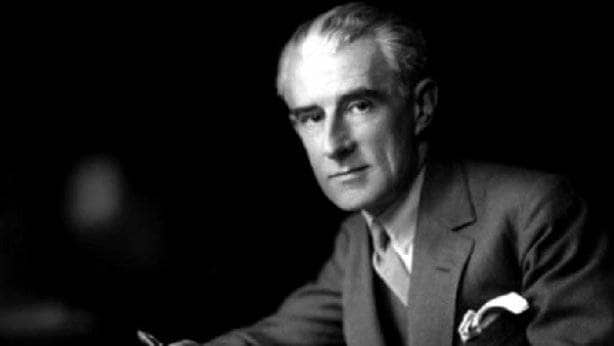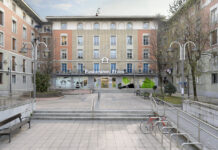The season opening concert for the Boise Philharmonic, with a program dedicated especially to Maurice Ravel, is the perfect excuse to again write about one of the topics that most greatly saddens us: the appropriation by Spain and France of the history of the Basques, the role of the Basques in history, and the national origin of those Basques who have left their mark in different areas of the world.
This is not the first time we’ve brought up this tendency in Spanish and French media to attribute bad things, such as terrorist attacks, to Basques (Basque terrorists), while positive achievements (such as in research, economy, or business) are attributed to Spaniards and Frenchmen.
The Ravel case is the paradigm. His biographies recall the time a French encyclopedia claimed that “Picasso was a French artist who was born in Málaga”. The same thing happens with this Basque composer. Whenever his origins are mentioned, he’s always a “French composer”, forgetting, or at least downplaying, his Basque origins and the influence Basque culture had on his oeuvre.
This is especially noticeable as he was Basque, spoke the Basque language (Bermeo-born artist José Mari Uzelai met him in Paris and spoke with him in Basque), and was strongly influenced by Basque culture and music. He made that quite obvious in his unfinished and rather unknown work, Zazpiak Bat, which we dedicated an entry to, and which we truly believe is required reading.
He made this very clear in his friendship with Aita Donostia, as we are told by Josu Okiñena, pianist and researcher of the oeuvre of Aita Donostia:
cuando conoció al sacerdote donostiarra, en 1920, “tenía miedo a encontrarse con una música muy monástica, pero se llevó una agradable sorpresa por la sensibilidad musical de la obra”. Tanto que escribe a su profesor, Eugène Cools, para recomendarlo: “Un compatriota mío, porque ha de saber usted que los vascos tenemos dos patrias, Aita Donostia, me ha visitado para darme a conocer sus obras y pedirme consejo…”. “Es una evidencia objetiva -enfatiza Okiñena-, lo estamos leyendo en las fuentes primarias. No solo al analizar su obra se encuentran elementos de la música vasca, sino que él mismo confiesa que se siente vasco”. (Noticias de Araba 30/1272012)
When he met the San Sebastian priest, in 1920, he “was afraid of encountering rather monastic music, but he was pleasantly surprised by the musical sensitivity of the work.” So much so that he wrote his professor, Eugène Cools, to recommend him: “A countryman of mine, because you must know that we Basque have two homelands, Aita Donostia, has visited me to share his works and ask me for adivce…”. “It is objective evidence,” emphasizes Okiñena, “what we’re readying in the source material. Not only do we find elements of Basque music in his oeuvre, but also he himself confessed to feeling Basque.”
It’s hard to make it any clearer.
And this all came to us when we read the press release in the Boise Weekly, highlighting the influence of Basque tradition on the composer’s works. It’s hard to find that in press releases or program notes, and some encyclopedias seem to downplay it or cast doubt on it. Fortunately for them, however, Boise is a long ways away from Paris or Madrid.
We’ll leave you with the article about the opening concert at the Boise Philharmonic and a video of the “Trio for Piano, Violin, and Cello”, with its heavy influences from traditional Basque music.
Boise Weekly – 18/9/2013 – USA
Boise Philharmonic Season Opener
Summer’s pivot into fall mirrors an anticipated wardrobe change: shorts to pants, sandals to shoes, skirts to dresses. And it’s time to break out the formal wear for fall high-society gigs. Boise Philharmonic is getting the ball rolling for its 2013-14 classical concerts season Friday, Sept. 20, and Saturday, Sept. 21, with Maurice Ravel’s Bolero, a one-movement piece for large orchestras, along with American composer Samuel Barber’s Symphony No. 1 and Ravel’s “Piano Concerto for the Left Hand” and “Piano Concerto in G.” Friday’s performance is in the Swayne Auditorium at Northwest Nazarene University in Nampa, and Saturday’s concert is at the Morrison Center. Both performances begin at 8 p.m. and tickets cost $20-$70.
(Follow) (Automatic translation)
Beaux Arts Trio plays Ravel Trio, I
Last Updated on Mar 13, 2022 by About Basque Country






